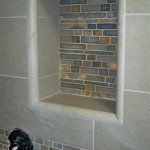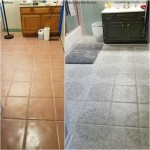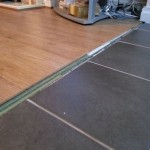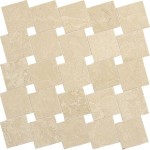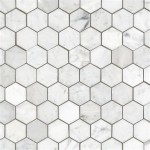The Benefits of Installing Large Concrete Tile Floors
Large concrete tiles are increasingly popular in both residential and commercial spaces. Their appeal stems from a combination of aesthetic versatility, durability, and relatively straightforward installation, resulting in a modern and sophisticated look. Choosing large concrete tiles offers numerous advantages compared to smaller formats and other flooring materials. This article explores the key benefits associated with installing large concrete tile floors.
Minimizing Grout Lines
One of the most significant advantages of large concrete tiles is the reduction in grout lines. Grout, while essential for binding tiles and preventing moisture penetration, is often the most problematic aspect of tiled flooring. Grout lines are prone to staining, discoloration, and cracking over time, requiring regular cleaning and maintenance. The sheer size of large concrete tiles inherently minimizes the presence of grout lines, leading to a cleaner, more seamless appearance. This reduction in grout also translates to several practical benefits.
Fewer grout lines simplify the cleaning process. Dirt, grime, and spills tend to accumulate within the porous surface of grout. With less grout present, there are fewer areas for these substances to settle. This results in a surface that is easier to wipe clean and less susceptible to stubborn stains. The reduced cleaning effort is particularly beneficial in high-traffic areas such as kitchens, bathrooms, and entryways.
The aesthetic impact of minimizing grout lines is also substantial. A floor with fewer visible grout lines appears more expansive and uncluttered. This creates a sense of spaciousness, particularly in smaller rooms. The visual flow of the flooring is less interrupted, allowing the natural beauty of the concrete material to take center stage. Furthermore, the reduced grout lines contribute to a more minimalist and modern aesthetic, aligning with contemporary design trends.
When grout is present, opting for epoxy grout can further enhance its durability and stain resistance. Epoxy grout is non-porous, which makes it considerably more resistant to water, stains, and chemicals compared to traditional cement-based grout. While it is typically more expensive and requires more specialized installation, the long-term benefits in terms of reduced maintenance and enhanced appearance are significant.
Enhanced Durability and Longevity
Concrete, as a material, is renowned for its inherent strength and durability. Large concrete tiles inherit these qualities, offering a robust flooring solution that can withstand heavy foot traffic and resist wear and tear. The manufacturing process of concrete tiles often involves a high degree of compaction and curing, further enhancing their structural integrity.
The durability of large concrete tiles makes them suitable for a wide range of applications, including residential, commercial, and even industrial settings. They can withstand the weight of heavy furniture, equipment, and machinery without cracking or fracturing. This resilience is particularly important in areas where there is frequent movement of heavy objects or where the flooring is subjected to significant stress.
Concrete tiles are also resistant to scratches, dents, and abrasion. This resistance is vital in maintaining the aesthetic appeal of the flooring over time. Unlike softer flooring materials such as wood or vinyl, concrete tiles are less prone to damage from everyday activities such as walking, dragging furniture, or accidental impacts. This longevity translates to lower maintenance costs and a longer lifespan for the flooring.
The inherent thermal mass of concrete contributes to its durability and energy efficiency. Concrete can absorb and store heat, releasing it gradually over time. This property helps to regulate the temperature of a room, reducing the need for excessive heating or cooling. The thermal mass of concrete also helps to prevent rapid temperature fluctuations, which can cause other flooring materials to expand and contract, leading to cracks or warping.
Furthermore, concrete is a naturally fire-resistant material. It does not burn or contribute to the spread of flames, making it a safer flooring option compared to combustible materials such as wood or carpet. This fire resistance is particularly important in commercial buildings and residential homes where fire safety is a paramount concern.
Design Versatility and Aesthetic Appeal
Large concrete tiles offer a high degree of design versatility, making them adaptable to a wide range of architectural styles and interior design schemes. They are available in a variety of colors, textures, and finishes, allowing for customization and personalization. This versatility allows designers and homeowners to create unique and visually appealing flooring solutions.
The neutral tones and natural textures of concrete complement a variety of color palettes and design elements. Concrete tiles can be used to create a minimalist and modern aesthetic, or they can be incorporated into more traditional or eclectic designs. The versatility of concrete allows it to blend seamlessly with other materials such as wood, metal, and glass.
Large concrete tiles are available in a range of sizes and shapes, allowing for creative installation patterns. They can be laid in a grid pattern, a staggered pattern, or a herringbone pattern, depending on the desired aesthetic effect. The large format of the tiles emphasizes the pattern and creates a visually striking effect.
Concrete tiles can also be stained or dyed to achieve a specific color or finish. This allows for even greater customization and personalization. Staining can be used to enhance the natural tones of the concrete or to create a more dramatic and vibrant effect. Dyeing can be used to create a uniform color throughout the tile or to create a patterned effect.
The surface of concrete tiles can be treated to create a variety of textures and finishes. Polishing the surface creates a smooth, glossy finish that reflects light and enhances the spaciousness of a room. Honing the surface creates a matte finish that is more slip-resistant. Texturing the surface can add visual interest and create a more tactile feel. The ability to customize the surface finish allows designers to tailor the flooring to the specific needs and preferences of the client.
In addition to their aesthetic versatility, large concrete tiles are also a sustainable flooring option. Concrete is made from readily available materials such as cement, sand, and aggregates. The manufacturing process of concrete tiles generally requires less energy compared to other flooring materials such as ceramic tile or hardwood. Furthermore, concrete is a recyclable material, which reduces waste and promotes environmental responsibility.
The combination of durability, design versatility, and sustainable properties makes large concrete tiles a compelling flooring choice for a wide range of applications. Their ability to minimize grout lines, withstand heavy traffic, and complement various design styles makes them a practical and aesthetically pleasing option for both residential and commercial spaces.
Easy Maintenance and Cleaning
As briefly mentioned previously, the reduced grout lines afforded by large format concrete floor tiles translates directly to ease of maintenance. The cleaning process is simplified because there are fewer grout lines where dirt, grime, and spills can accumulate.
Beyond the reduced frequency of grout cleaning, concrete tiles themselves boast a relatively non-porous surface. This means that spills and stains are less likely to penetrate the tile itself, making them easier to wipe away. Routine cleaning typically involves sweeping or vacuuming to remove loose debris, followed by mopping with a mild detergent and water.
For more stubborn stains, specialized concrete cleaners are available. These cleaners are formulated to effectively remove stains without damaging the tile. It is important to follow the manufacturer's instructions when using any cleaning product to ensure that the tile is not harmed.
Sealing concrete tiles can further enhance their stain resistance and simplify the cleaning process. A sealant creates a protective barrier that prevents spills and stains from penetrating the tile. Sealants are available in a variety of formulations, including water-based and solvent-based options. It is important to choose a sealant that is appropriate for the specific type of concrete tile and the intended use of the flooring.
The ease of maintenance of large concrete tile floors translates to significant time and cost savings over the lifespan of the flooring. Reduced cleaning effort and the need for less frequent repairs make them a practical and cost-effective flooring option for both residential and commercial properties. This is especially advantageous in high-traffic areas where the flooring is subjected to frequent use and potential spills.

Why Are Large Format Tiles Necessary For Your Home Gib Tiling

Concrete Tile Benefits Network

Benefits Of Large Format Tile And How To Install It Louisville

Convincing Reasons You Need To Have Concrete Tiles For Your Home

What You Should Know About Installing Large Format Porcelain Tile Arizona

Benefits Of Tile Flooring Installers Miami Pros

Installation Of Large Format Tiles Ardex Endura
When Cementing Tile Why Do People Add Rows To The Cement Instead Of Just Leaving It Smooth Quora

Pros And Cons Of Polished Concrete Floors Craftsman

Ceramic Flooring That Can Be Installed 8 Times Faster Than Conventional Tiling Archdaily
Related Posts


